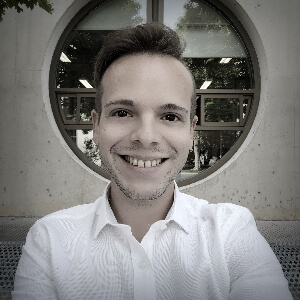The Past, Present, and Future of Your Identity


Written and verified by the psychologist Gorka Jiménez Pajares
What’s identity? How about self-concept? You probably use these two words on a daily basis, without really knowing what they mean. As a matter of fact, your personal identity, self, self-concept, or simply the ‘I’ is the perception that you have about yourself as an object and a subject. In this article, we explain how, as a human being, you organize your self-concept. Moreover, we’re going to write about the past, present, and future of your identity.
The perception you have of yourself as an ‘object’ means how you view what you’re experiencing, thinking, or feeling. The integration of all of the above allows you to understand that you’re unique and unrepeatable.
You’re able to perceive yourself, thanks to the fact that you’re aware of yourself as the engine capable of carrying out and experiencing processes of a psychological nature. This helps you to recognize yourself.

Representations of self-concept
Self-concept is a complex psychic structure. It’s determined by the knowledge you possess about yourself. It’s formed by a nuclear structure that constitutes your essence that’s consistent and coherent with your biographical history.
One relevant author in the study of self-concept is Markus. This author proposes that self-concept can be divided into two kinds of representations:
Peripheral representations of self-concept
These representations are less self-defining. That’s because they’re less elaborate on a cognitive and emotional level. In fact, they’re based, to a lesser extent, on the data that you accumulate throughout your life. They’re characteristics that you don’t value particularly highly. Consequently, they’re not particularly important for your self-concept.
Central representations of self-concept
These are the most peculiar, idiosyncratic, special, and essential aspects of yourself. They’re made up of schemas. These are the ways in which you think, feel, and act in response to the environment. You’ve learned to do so from your personal history.
Self-concept and time
In addition, Markus makes a distinction between the self-concepts of three temporal moments: those related to the past, present, and future.
Self-concept related to the past
Your identity or self-concept relative to previous times refers to the knowledge you possess about how you were in the past. For instance, what did you think when you were a teenager? What were you like when you had your first kiss? How did you deal with your first breakup?
Your self-concept will be more noteworthy if you’ve changed and transformed some of the attributes that characterized you previously.
They also become more salient and are more easily identifiable when you try to change some part of your current self-concept that’s similar to what you maintained in the past and that makes you feel uncomfortable.
Your current self-concept
Your current identity or self-concept encompasses all the characteristics, thoughts, and attitudes that you have toward yourself now. These can be activated and made accessible at certain points in time.
The central representations of self-concept are those that constitute your real self-concept to a greater extent. That’s because you activate them in specific contexts and at particular moments. In addition, they define what you think and believe.

Your future self-concept
How would you like to be? What would you like to change about yourself? How would you like to think? Your future self-concept is made up of the set of hopes, fears, desires, and desires that are important to you. In addition, it includes the skills that you’d like to acquire and the weak points that you’d like to strengthen.
In fact, your future self-concept is a motivator for you to start new behaviors that bring you closer to your aspirations and goals. As is logical, it also encompasses the fear that you might feel when you’re far from achieving them and when they imply a considerable effort.
In this sense, your possible self-concepts can function as a cognitive bridge between your self-concept of the present (what you are in the here and now) and your future self-concept (what you want to be). Moreover, they favor your mental construction of scenarios and courses of appropriate action to take.
What’s identity? How about self-concept? You probably use these two words on a daily basis, without really knowing what they mean. As a matter of fact, your personal identity, self, self-concept, or simply the ‘I’ is the perception that you have about yourself as an object and a subject. In this article, we explain how, as a human being, you organize your self-concept. Moreover, we’re going to write about the past, present, and future of your identity.
The perception you have of yourself as an ‘object’ means how you view what you’re experiencing, thinking, or feeling. The integration of all of the above allows you to understand that you’re unique and unrepeatable.
You’re able to perceive yourself, thanks to the fact that you’re aware of yourself as the engine capable of carrying out and experiencing processes of a psychological nature. This helps you to recognize yourself.

Representations of self-concept
Self-concept is a complex psychic structure. It’s determined by the knowledge you possess about yourself. It’s formed by a nuclear structure that constitutes your essence that’s consistent and coherent with your biographical history.
One relevant author in the study of self-concept is Markus. This author proposes that self-concept can be divided into two kinds of representations:
Peripheral representations of self-concept
These representations are less self-defining. That’s because they’re less elaborate on a cognitive and emotional level. In fact, they’re based, to a lesser extent, on the data that you accumulate throughout your life. They’re characteristics that you don’t value particularly highly. Consequently, they’re not particularly important for your self-concept.
Central representations of self-concept
These are the most peculiar, idiosyncratic, special, and essential aspects of yourself. They’re made up of schemas. These are the ways in which you think, feel, and act in response to the environment. You’ve learned to do so from your personal history.
Self-concept and time
In addition, Markus makes a distinction between the self-concepts of three temporal moments: those related to the past, present, and future.
Self-concept related to the past
Your identity or self-concept relative to previous times refers to the knowledge you possess about how you were in the past. For instance, what did you think when you were a teenager? What were you like when you had your first kiss? How did you deal with your first breakup?
Your self-concept will be more noteworthy if you’ve changed and transformed some of the attributes that characterized you previously.
They also become more salient and are more easily identifiable when you try to change some part of your current self-concept that’s similar to what you maintained in the past and that makes you feel uncomfortable.
Your current self-concept
Your current identity or self-concept encompasses all the characteristics, thoughts, and attitudes that you have toward yourself now. These can be activated and made accessible at certain points in time.
The central representations of self-concept are those that constitute your real self-concept to a greater extent. That’s because you activate them in specific contexts and at particular moments. In addition, they define what you think and believe.

Your future self-concept
How would you like to be? What would you like to change about yourself? How would you like to think? Your future self-concept is made up of the set of hopes, fears, desires, and desires that are important to you. In addition, it includes the skills that you’d like to acquire and the weak points that you’d like to strengthen.
In fact, your future self-concept is a motivator for you to start new behaviors that bring you closer to your aspirations and goals. As is logical, it also encompasses the fear that you might feel when you’re far from achieving them and when they imply a considerable effort.
In this sense, your possible self-concepts can function as a cognitive bridge between your self-concept of the present (what you are in the here and now) and your future self-concept (what you want to be). Moreover, they favor your mental construction of scenarios and courses of appropriate action to take.
All cited sources were thoroughly reviewed by our team to ensure their quality, reliability, currency, and validity. The bibliography of this article was considered reliable and of academic or scientific accuracy.
-
Paniagua, S. Á. M. (2022). Introduccion Al Estudio De Las Diferencias Individuales (2 Ed.). Sanz Y Torres, S.l.
-
Garma Sordo, A. M. (1989). Autoconcepto y motivación en el aprendizaje.
-
González-Pienda, J. A., Pérez, J. C. N., Pumariega, S. G., & García, M. S. G. (1997). Autoconcepto, autoestima y aprendizaje escolar. Psicothema, 271-289.
This text is provided for informational purposes only and does not replace consultation with a professional. If in doubt, consult your specialist.







